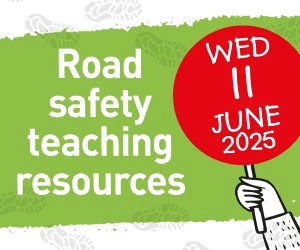Primary Times - the definitive what’s on and where to go family guide of activities and events for children of primary school age. Things to do with your kids during the school holidays including arts and craft activities, music and theatre for children, parties, competitions, days out, and family attractions along with term time drama schools, dance classes, after school clubs and sports activities. Things to do at a place near you!
Tips to help your child succeed in primary school
 Is your child struggling in his/her studies? Are you afraid that she isn’t motivated enough to make the needed effort? Well, it is common for primary school kids to struggle with learning, social, and emotional problems, so you don’t have to be too worried for now. If you want to help them to live up to their full potential, you really need to identify the obstacles that could be getting in their way.
Is your child struggling in his/her studies? Are you afraid that she isn’t motivated enough to make the needed effort? Well, it is common for primary school kids to struggle with learning, social, and emotional problems, so you don’t have to be too worried for now. If you want to help them to live up to their full potential, you really need to identify the obstacles that could be getting in their way.
To begin with, it is important to note that child easily disengage academically if the parents and educators fail to give them sufficient attention. Most children who underperform in primary school have a few things in common: Their families aren’t too supportive academically-speaking, they lack the necessary academic resources to make learning easy and fun, they live around unsupportive communities, and are generally demotivated to put in the much-needed effort. Is your child affected by any of those? If yes, then you know what to do. If not, here are 5 tips that you can apply to help your primary school child succeed academically:
1. Get involved in their school work
Are you present in your child’s academic life? Well, you should if at all you want her to become more committed to her school work. The very basic step towards this much-needed presence is starting to do homework with her. Help her answer the questions and research where necessary, but don’t do the homework for her. The second step is to make it your duty to ask her about her day in school, her friends, her teachers, and everything exciting she is willing to share with you. Thirdly, start showing genuine concern to her fears and pains. For example, if she isn’t comfortable waking up before everyone else, start waking up earlier than her even if your job doesn’t require you to.
2. Teach your child that not knowing is the first step in the learning journey
No one starts with competence. We all start from a period of incompetence and then work our way to competence. Why, then, would you expect your child to hit the ground running in a jiffy? Allow the child time to not know, and then guide her to the path of knowledge. Encourage her to keep trying even in the wake of failure. Teach them to avoid failure at all costs, to work hard at all times, but in the same breath teach them to be resilient and strong enough to pick up the pieces in case of failure strikes. If you have your own failure stories to share, including how you overcame them, please share it with the child.
3. Invest in learning tools
Modern learning tools such as educational videos for K-5 students will help your child love studies. Videos are easy to understand, they are fun, and they appeal to multiple senses. They will help your child relax and see education in a different light. Videos for K-5 students help children perform better in tests, gain unbeatable self-confidence, and study fruitfully.
4. Give your child nutritious meals
You will agree that a nutritious, delicious, and healthy breakfast sets you up for greatness. It gives you the energy to be optimally productive at work and to make the best decisions throughout the day. That is the same effect a nutritious breakfast will have on your kid’s academic life. On top of giving your kid the necessary energy to get through school, a healthy breakfast keeps the kid off the school health center. The lesser the trip she makes to the school nurse, the more time she has to be in class. Foods that boost the attention span and memory of a kid include proteins, nuts, fiber, and grains. To improve her memory, ensure that her breakfast has minimal added sugar. Remember to pack some fresh fruit for her.
5. Explain the relevance of academic subjects to your child
Most primary school kids do not understand the relevance of school in their future lives. There are kids, for example, who think that math is an unnecessary subject that teachers use to harass them. Others don’t understand why they should learn the language yet they already know how to speak, or why they should learn the alien subject called science. It is your job to break down what every subject is and the relevance it has in life. Once it is clear to the kid that science or math is applicable in everyday life, he will be eager to learn.
Conclusion
In everything you do, always remember that parental support is critical in the success or failure of any primary school child. Know what you need to do (and not do) in helping your child do well academically. Your level of education doesn’t feature anywhere here; just use the little money and education you have to reinforce learning at home.



